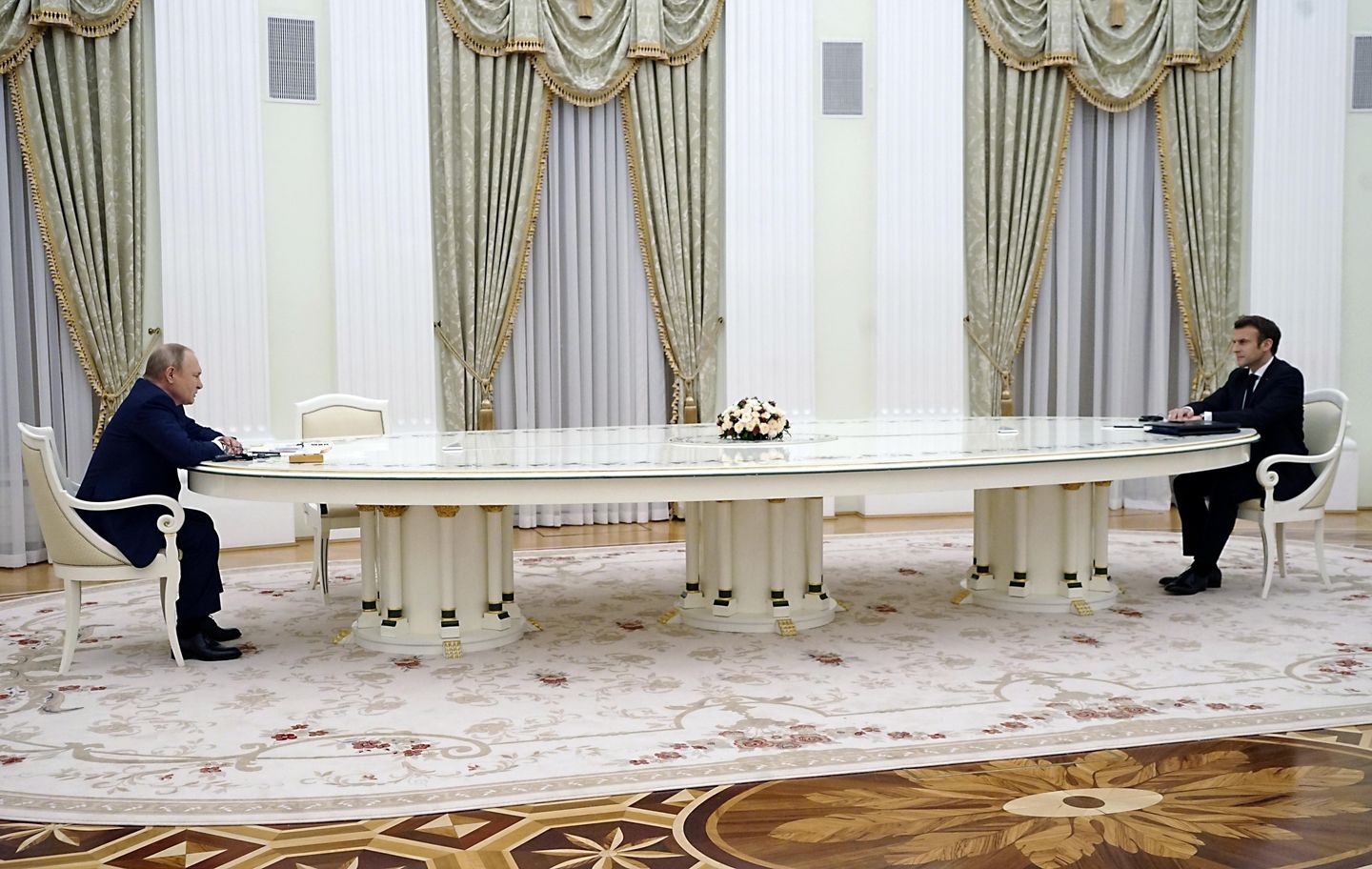
French President Emmanuel Macron spoke to Russian President Vladimir Putin for the first time in three years this week, urging the Russian leader to pressure Iran to cooperate with U.N. nuclear inspectors.
According to French officials, the two leaders spoke on the phone Tuesday for over two hours and discussed how Russia could intervene in the Iranian nuclear crisis. Mr. Macron reportedly left the call optimistic about the idea of Russia pressuring Tehran to allow U.N. nuclear inspectors back into the country.
Mr. Macron indicated a willingness to respect Iran’s ability to enrich uranium for civilian purposes. However, French officials have expressed strong opposition to Iran developing nuclear weapons.
“The two leaders spoke in favor of settling the crisis around Iran’s nuclear program and any other differences arising in the Middle East exclusively via political and diplomatic means. They agreed to maintain contact in order to coordinate their stances if necessary,” the Kremlin wrote of the conversation.
On Wednesday, Iranian President Masoud Pezeshkian signed into law a bill that would sever Iran’s cooperation with the International Atomic Energy Agency. The law would shutter all of Iran’s uranium enrichment facilities from independent investigation and let it expand its nuclear program.
According to Tehran, the IAEA’s credibility was destroyed when it failed to condemn Israel’s preemptive strikes on Iran’s nuclear infrastructure. Additionally, Iranian leadership maintains that the IAEA’s June resolution, which found Iran failed to uphold its obligations to the Nuclear Nonproliferation Treaty, gave Israel grounds for its attack a few days later.
The IAEA said it’s aware of the bill but is still waiting on further details from Iran. It’s unclear if any IAEA inspectors are in the country.
Leaders in Germany and France have urged Iran to cooperate with IAEA inspectors, with the German Foreign Ministry asserting that cooperation is the only pathway to a diplomatic solution.
Iran has threatened to halt cooperation with the IAEA in the past, but it has typically been seen as a calculated threat during the negotiation process. Additionally, the law could be a way of disguising the extent of the damage done to Iran’s enrichment facilities by Israeli and U.S. airstrikes.












